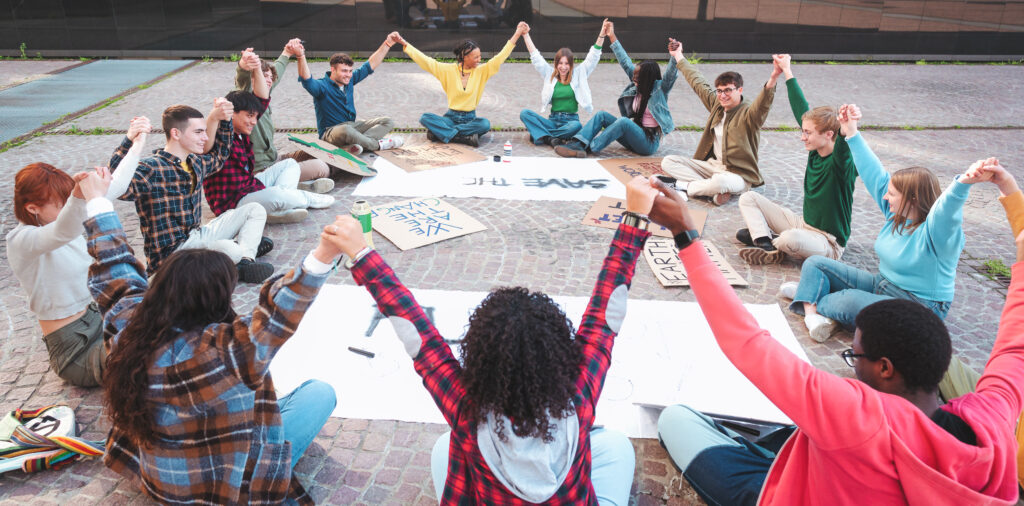On 21st September 2024, International Peace Day when ideals of peace are to be strengthened within and amongst nations. It was instituted by the United Nations General Assembly in 1981. It is to be counted as a symbolic pursuit of peace, calling for the end of conflict and violence for 24 hours around the world. As we commemorate this day in 2024, the focus must be on the future — specifically, on kids and how they hold the key to shaping a more peaceful world.
The Role of Future Generations in Building Peace
Kids are the hope and the foundation for a future wherein peace is a norm of life, not just a noble dream. As long as there is still conflict in the world, there is a need to foster tolerance, understanding, and peacemaking in our youngest citizens. Education, civic involvement, and a conscious undertaking to nurture a spirit that pursues peaceful coexistence will provide the foundation upon which a harmonious global community is to be built.
Education as a Pillar of Peace
UNESCO declares education as a core factor in creating peace since it instills mutual understanding and a respect for human rights including tolerance. Countries ridden by conflict that have really emphasized education have managed to develop peace-building capacities among their youths. According to UNESCO research, each additional year of schooling is able to reduce the risk of conflict by about 20%.
By ensuring future generations to deal with conflicts by means other than violence only if kids all over the world are given quality education and made to develop in them a capacity for critical thinking, empathy, and cooperation. This kind of peace education helps provide students with skills in conflict resolution and responsibility toward the global community.
Peace through Digital Literacy
The current era of digitalization subjects kids more than ever to information and most commonly misinformation. Where digital platforms unify everyone in a single thread, they have also routinely acted as hotbeds for hate speech, violence, and divisive ideologies. Teaching children digital literacy at school could be key in the fight against online extremism. The United Nations Children’s Fund has, over a long period of time, promoted responsible use of technology among its youth by advocating for an educational curriculum that allows children to make a distinction between what credible sources look and feel like from that which is harmful.
Youth-Led Movements for Peace
From climate action to peacebuilding, youths’ activism has always been that influential spur that triggers change. The youth of today are leading peace movements around the world. Take the example of the Global Peace Foundation. Under the auspices of this foundation, several initiatives have been undertaken that contribute to community development and interfaith dialogue, paving the way for cooperation and building trust among people of different cultural and religious backgrounds.
These following initiatives show how developing the leadership quality in young minds can create ripples in society. By supporting these movements, we actually facilitate solving present conflicts and build resilience against future conflicts.
Facts and Data Supporting the Role of Youth in Peace
- Demographic trends and peace: UN Department of Economic and Social Affairs estimated that persons between the ages of 10 to 24 years are 1.8 billion in the global population. In fact, their participation in peace-building is salient; it is because conflict bears a huge toll on them-when children represent 50% of the world’s refugee population.
- Peace Education Programs: The Institute for Economics and Peace (IEP) report estimated that peace education programs targeting youth might reduce the incidence of conflict by as much as 15% in the most conflict-prone areas. Countries which invest in educating their youth are more likely to sustain peace over time.
- Psychological Effects of War on Kids: There is evidence that children, while growing up in conflict zones, run a sevenfold higher risk of showing symptoms from PTSD. However, programs that incorporate mental health treatment along with peace education significantly reduced the statistics, indicating holistic approaches toward peacemaking from war-torn areas.
Action Steps: How We Can Support Children in Peace-Building
- Invest in Peace Education: Schools and communities should integrate peace education into their curricula, teaching children how to navigate conflicts through dialogue and understanding.
- Support Youth-Led Initiatives: Governments, NGOs, and international organizations should create spaces where young voices can be heard, giving them opportunities to lead peace-building projects in their communities.
- Digital Literacy for Peace: Promote programs that educate children on the responsible use of digital tools, helping them to become peace advocates in both online and offline spaces.
- Foster Inclusion and Tolerance: Engage children in multicultural activities that allow them to appreciate diversity, fostering a global mindset of unity and respect for differences.
As we mark International Peace Day 2024, let us remember that children are the seeds we plant today for the peace we seek tomorrow. By investing in their education, empowering them through digital literacy, and encouraging their participation in peace-building efforts, we lay the foundation for a future where conflicts are resolved not through violence, but through understanding, dialogue, and mutual respect.
International Peace Day serves as a reminder that the pursuit of peace is an ongoing process, one that must involve everyone, especially the next generation. By guiding our children to become peacebuilders, we ensure that the ideals of peace will endure for generations to come.





